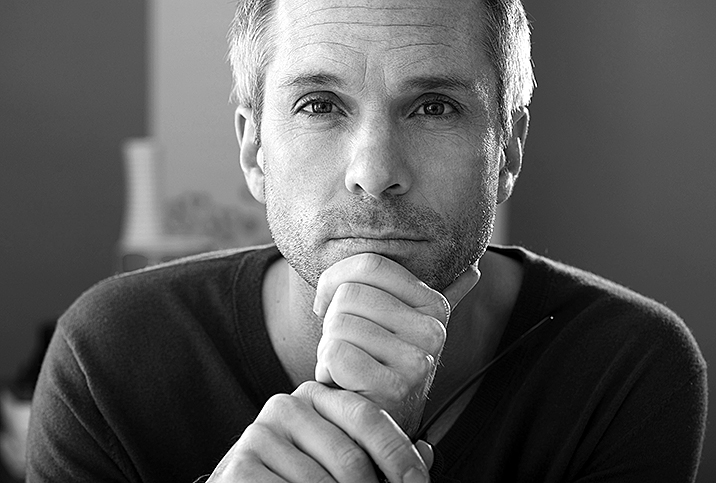How the Male Body Changes At 60 and What to Do About It

Some men in their 60s will start to notice a rapid decline in their physical health and mental state, according to Jerry Bailey, D.C., M.S., an acupuncturist and chiropractic and functional medicine physician at Lakeside Holistic Health, with offices in Idaho and Washington.
"They often become more reserved, more emotional, less connected to everyone around them," he said. "Their bodies change rapidly in the loss of muscle mass, increase in fat mass, along with brain function decline."
That all sounds a bit doom and gloom, but it doesn't have to be that way.
"Taking simple steps to improve your health will increase longevity," Bailey added.
Let's look at four major ways the male body changes at 60, and the steps you can take to live your best life.
Male body changes at 60: Memory and brain function
"Men will notice cognition and memory decline, often leading to confusion and aggression with their moods," Bailey explained.
Scientists are not certain as to why age-related cognitive decline happens, but Bailey said several contributing factors include:
- An increase in estrogen production, which happens in fat cells
- A decrease in testosterone levels due to lower production of testosterone and rigidity within the hypothalamus, the hormone control center
- Loss of brain-derived neurotrophic factor (involved in learning and memory) due to reduced muscle mass/shrinking of the brain
- Neurological inflammation from a poor diet
- A reduction of blood flow to the brain due to atherosclerosis, or thickening of the arteries
These changes in the brain make it harder to think, recall memories, focus and process new information.
"The decline in mental function happens much quicker in this age group than in the 50s," Bailey said.
This isn't the case for everyone. Some people in their 80s and 90s, known as cognitive super-agers, demonstrate the same memory and brain function of people 30 years younger. Researchers are trying to understand why the same level of cognitive decline does not happen to these people.
Alexander Zuriarrain, M.D., a quadruple-board-certified plastic surgeon with Zuri Plastic Surgery in Miami, added that living alone and having fewer social connections can significantly impact mental health.
One study indicated cognitive super-agers self-reported more friends and family connections, according to the National Institute on Aging. This ties in with previous research, which linked psychological well-being with a lower risk of Alzheimer's disease.
While research continues to identify the factors that affect brain health, you can try several strategies to help maintain your mental function as you undergo male body changes at 60 and beyond. The Alzheimer's Association recommends these top tips:
- Eat a low-fat diet packed with fruit and vegetables. The Mediterranean and Mediterranean-DASH (Dietary Approaches to Stop Hypertension) diets may reduce the risk of cognitive decline.
- Continue to do activities you love, stay socially engaged and try to be a part of your community in a way you enjoy.
- Challenge your brain by continuing education, completing a puzzle or playing a strategy game.
- Stay active, quit smoking and keep your heart healthy. Studies show a link between physical activity and reduced risk of cognitive decline.
- Get a good night's sleep every night.
Male body changes at 60: Prostate problems
In general, a variety of organ systems begin to experience significant problems after age 65, Zuriarrain noted. The genital system is no exception. The effects of age can lead to erectile dysfunction (ED) and an inability to have repeated ejaculations in a short amount of time.
The prostate will likely become a source of issues, too. Enlargement of the prostate known as benign prostatic hyperplasia, which more than half of men can expect to experience during their 60s, causes significant changes in urinary function, including urinary retention and increased frequency.
Eating a proper diet and taking care of your overall health are two ways to manage prostate size and, therefore, urinary issues. Many men don't get the kinds of vitamins and minerals they need solely through their diet, however. A supplement can help, especially one that combines three prostate-friendly herbs in one vegetarian capsule, like Prostate Health vitamins from Giddy Health. Utilizing saw palmetto, stinging nettle and pygeum, this supplement is formulated to manage prostate size and maintain a healthy urinary flow. Microbead technology ensures a timely release of nutrients throughout the day.
Unfortunately, prostate cancer is much more common in this age group. It has a 99 percent five-year relative survival rate when it is detected early, but that means men need to be diligent about screenings.
Although men older than 50 may be at risk of prostate cancer, the disease predominantly affects men older than 65. The American Cancer Society states that about 6 in 10 men diagnosed with prostate cancer are 65 or older. In fact, the average age of men at diagnosis is about 66.
There is no proven strategy to prevent prostate cancer. However, you can take steps to help reduce your risk. The American Cancer Society advises these tips:
- Keep physically active
- Maintain a healthy weight
- Eat a nutritious diet high in fruits, vegetables and whole grains, and try to avoid highly processed foods or foods packed with sugar
Early research also indicates that soy isoflavones might help lower prostate cancer risk.
Male body changes at 60: Skin cancers
"More advanced forms of skin cancers, such as squamous cell carcinoma, basal cell carcinoma and melanoma, begin to appear after the age of 65," Zuriarrain explained.
The American Academy of Dermatology Association highlights that melanoma affects men much more than women:
- From age 50, men are more likely to develop melanoma as compared to women.
- By age 65, men are twice as likely as women of the same age to get melanoma.
- This rate increases to three times more likely to develop melanoma than women at age 80.
- Overall, men are more likely to die from melanoma than women.
Men's skin is different from women's. It tends to be thicker, with less fat beneath, and contains more collagen and elastin. These differences in the skin are what scientists think makes men's skin more likely to be damaged by ultraviolet rays.
It's never too late to protect your skin, so starting today, follow these four rules:
- Wear water-resistant sunscreen rated at SPF 30, offering broad-spectrum protection.
- Have regular skin cancer screenings, especially if you are concerned about any changes to your skin.
- Wear a wide-brim hat, sunglasses and long-sleeved clothing if possible when outdoors.
- Stay out of the sun when it is strongest, between 10 a.m. and 2 p.m. Always seek shade when outdoors in hot, sunny weather.
Male body changes at 60: Hypertension and obesity
More than 37.5 percent of U.S. men older than 60 are obese, the National Health and Nutrition Examination Surveys estimate. Obesity increases the risk of morbidity, mortality, institutionalization and reduced quality of life.
"At 65, many men will notice they develop more of a chest jiggle and that their belly is lopping over their pants," Bailey noted.
"There is a much higher incidence of hypertension and obesity in this age group," Zuriarrain added.
Hypertension, or high blood pressure, is a significant health problem in older adults, and more men than women have hypertension, according to the Centers for Disease Control and Prevention.
Hypertension and obesity put you at increased risk of heart disease, heart attacks, strokes, type 2 diabetes and developing certain types of cancer.
"The key things to do are to eat a healthy diet, exercise and sleep," Bailey explained. "But at age 65, men really have to increase their dietary management and exercise levels.
"Living and aging do not have to be a negative experience," he added. "Taking the necessary steps to improve your health will allow you to have the life you want while living it to its fullest."


















